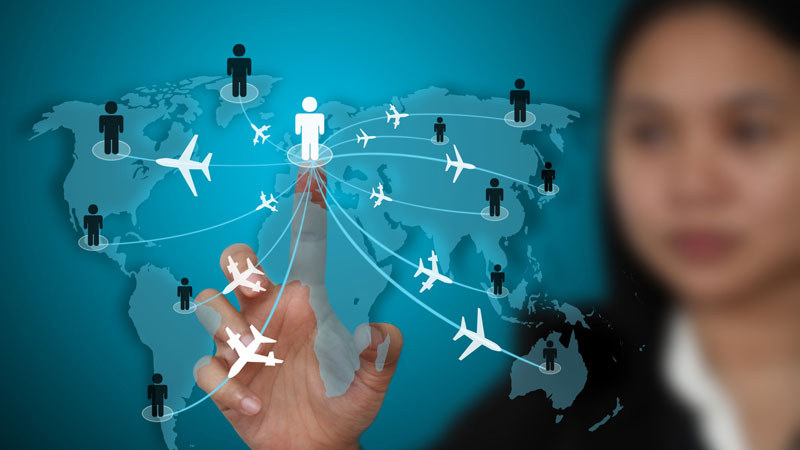The perennial problem of how best to target domestic markets via the web isn’t one that’s likely to be resolved anytime soon.
For those that are new to the world of online marketing, the bad news is that there’s no such thing as a ‘one size fits all’ solution covering every industry sector or consumer demographic.
Every aspect of every campaign, from the banner ads to the e-mail newsletters, must be carefully constructed with the target audience in mind. What looks clever and engaging to you as the marketer might not resonate quite so well with the cyber consumer.
And even if you have managed to hone your web-marketing skills down to a fine art for a specific target audience, trends are forever changing.
With international markets, the waters are even murkier. There are over 6,000 languages in the world, 96% of which are spoken by a mere 4% of the world’s population.
Talking to your prospects in their native tongue
In Europe alone, there are two hundred indigenous languages, twenty three of which are official languages of the European Union (EU).
German is the most commonly spoken native language of all the EU countries, with 18% speaking it as a mother tongue. English, however, is spoken by over 50% of the EU, if we take into account those who speak a second language.
However, this shouldn’t mean that you only ever market your products and services in English for international audiences.
It’s well documented that internet users are four times more likely to buy from a website that’s in their own language. Even if they are perfectly fluent in English, the chances are they will search in their native tongue in the first instance.
Consider the following facts too: Asia accounts for over 40% of the world’s internet users, whilst China has 30% more internet users than the US. And crucially, 75% of the world’s population speaks no English at all. That’s a lot of people.
So the need to talk to the international community in their own language is imperative: and it all starts with a fully localized and optimized website in the target country.
Choosing the right international domain name
First though, you have to consider the domain name. Your choice of name is entirely up to you, though you may want to consider something that is suitable for the country that you’re targeting – your brand name may work just as well abroad, but you are best using the services of a specialist translation/localisation company who can research any potential negative connotations of your name in your target market.
You’ll also want a local domain extension, such as ‘.de’ in Germany, ‘.ch’ in Switzerland or ‘.at’ in Austria. Equally important is your choice of web host as the server they use should be located in your target country – Google considers the IP address of the server in its ranking algorithms, so make sure you ask where their server is based before committing to using their services.
For any business looking to go global, the need to ‘think local’ means you should be aware of the multitude of cultural and linguistic complexities that you will face when entering foreign markets.
Considering localised keywords
So assuming you have a fully localised website ready to load onto your country-specific domain, what other issues should you consider from an SEO perspective before you launch your site?
Well, one of the main ones is keywords. When you’re having your website translated for the target market, it can be tempting to translate the keywords directly, but this should be avoided.
The correct dictionary translation of a keyword or phrase may NOT be what people use to search for the desired product or service locally: they may use abbreviations, colloquialisms or a different word that means the same thing.
So in the same way as you identify your industry’s highest ranking keywords for the English market, such as via Google’s free keyword finder, you have to research the keywords for each target country, to ensure your foreign language website is properly optimised.
The English term ‘car insurance’, for example, is a high-ranking industry search term on Google.com. A correct French translation of this is ‘l’assurance automobile’.
However, by checking the keyword tool on Google France, it’s clear that most consumers search with ‘assurance auto’ or ‘assurance voiture’ instead. So it certainly pays to research the keywords for each country rather than translating them.
Organic SEO techniques can be used in conjunction with pay-per-click (PPC) campaigns, such as Google AdWords which, in a nutshell, receives top-billing under a ‘sponsored link’ section on search engines and websites. PPC allow businesses to test out online marketing
techniques for very little money.
You can set your monthly budget at a nominal amount, such as €5 EUR, to gauge its efficacy without blowing your entire marketing budget.
English may still be the dominant language in terms of content on the Web, but the majority of the world’s internet users’ first language isn’t English. And this disparity creates a rather lucrative opportunity for those seeking to enter new markets: the competition for key search terms is much less on the non-English language internet; therefore it’s possible to attain high search engine rankings far easier than in English.
It’s clear that SEO and localisation play an integral part of the globalisation process, and any business that fails to market themselves internationally are missing a very simple trick.
About Lingo24
UK translation company that also specializes in website localisation. It has over 100 employees based in Europe, North America, Asia and Australasia, and a network of 4,000 translators. Its annual turnover is £3.65m.

